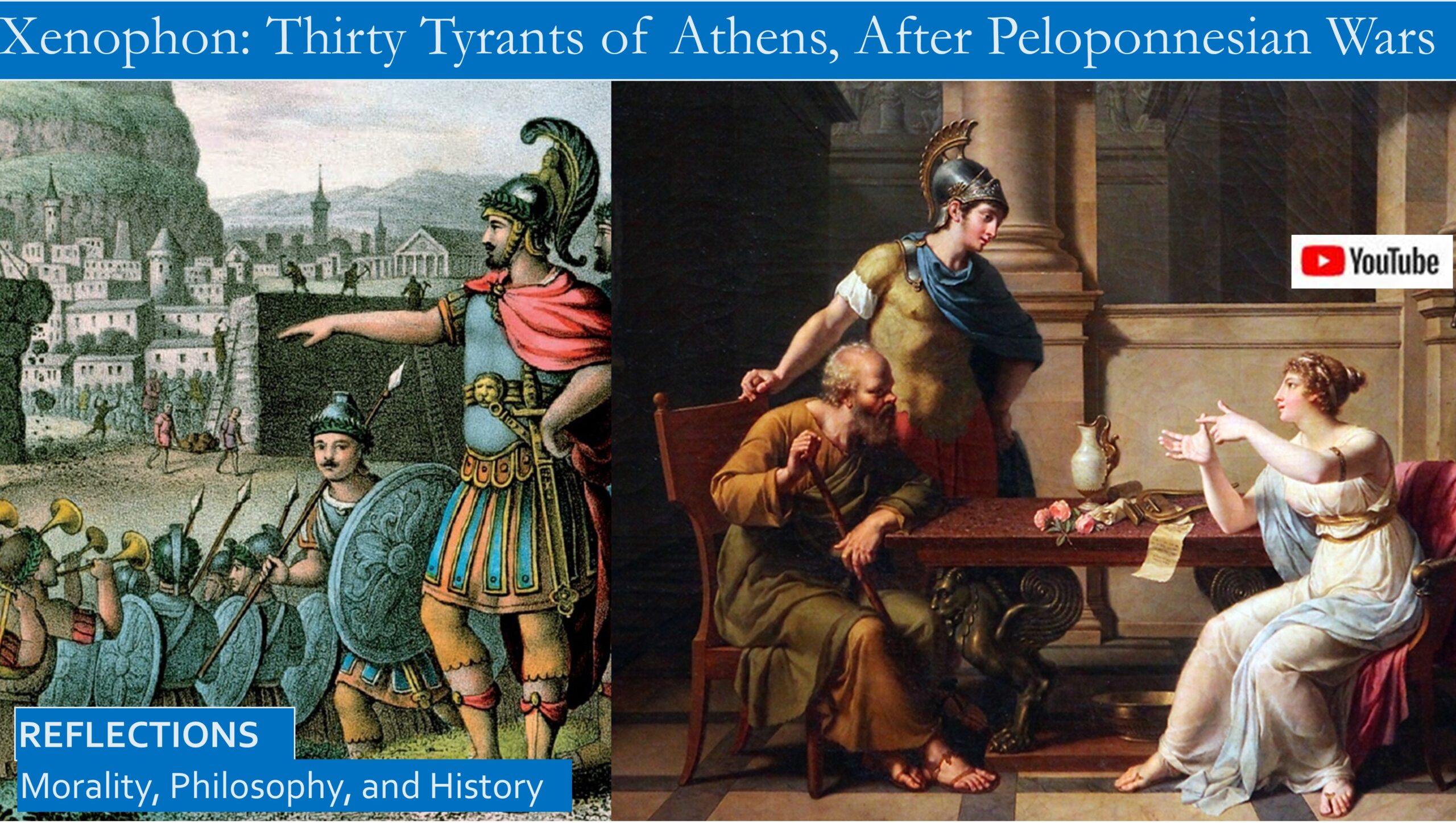
After the end of the Peloponnesian Wars, the victorious Spartan commander Lysander insisted that, as part of the terms of peace, the Athenians set up an aristocracy under the rule of the Thirty Tyrants. Although the previous tyrants in the sixth century BC were benevolent tyrants, the Thirty were Tyrants of the worst kind, dominated by the vicious Critias, a tyranny that quickly descended into an orgy of bloodshed directed first against their enemies, and then against their fellow aristocrats so they could seize their property. This misrule preceded the reestablishment of the Radical Democracy of Athens, and the events of the Thirty Tyrants cast a long shadow over Athenian history and the Platonic dialogues.
YouTube video for this blog: https://youtu.be/rrcwdHyvIEg
Link to view complete series of videos on the Peloponnesian Wars:
https://www.youtube.com/watch?v=szi7-9QQWI0&list=PLJVlY2bjK8lg2pivnGN3m13VI8YstKs0T
SUMMARY OF PELOPONNESIAN WARS
First, we need to summarize the main events of the Peloponnesian Wars. These wars followed the Greco-Persian Wars by about fifty years. We reflected on the period between the Greco-Persian Wars, and the life and career of the Athenian statesman Pericles up through his death by the plague in the second year of the Archidamian War, the first phase of the Peloponnesian Wars.
After the war-hawk generals of both Athens and Sparta were killed in battle, Nicias negotiated the Peace of Nicias, which although it was not very peaceful, it did end direct hostilities between Athens and Sparta for nearly seven years.
But the Peace of Nicias was broken when Athens launched the doomed Sicilian Expedition. When the Syracusans defeated the dilatory and timid Nicias, the Athenians lost everything, two-hundred triremes, hoplites, rowers, even generals, including Nicias and Demosthenes, were destroyed and slain, very few escaped, and Sparta restarted the war in response to Athenian aggression and her loss in Sicily.
After this defeat, Athens struggled, but her fortunes improved when Alcibiades, who had been previously exiled but who now engineered a comeback, assumed command of her fleet and propelled the Athenians to five years of victories. When Alcibiades assumed the leadership of the Athenian fleet in her island base of Samos, in Athens, in the Oligarchic coup, the aristocrats coaxed the Athenian Assembly to abolish itself and permit an oligarchy of the Four Hundred to assume control of the government, reasoning that this may attract Persian aid, and promising to hand the government to a more representative body of the Five Thousand. The oligarchs of the Four Hundred ruled for about four months, the Persian aid did not materialize, and Alcibiades called their bluff, calling for the rule by the Five Thousand, ending the rule by Athenian oligarchs.
After a minor tactical defeat following a five-year run of victories, her talented general, Alcibiades, was deprived of his command and went into exile for a second time. After that, the Athenian Assembly, acting in haste, executed six of the ten generals who, although they had won great victory in the Battle of Arginusae, they were prevented from rescuing many rowers clinging to wrecked or trireme, from or recovering their bodies for burial, by a fierce storm.[1] The inexperienced generals replacing them lost the war to the Spartan general Lysander when their carelessness permitted Lysander to destroy the Athenian fleet of two hundred triremes.
SPARTA FORCES ATHENS TO ADOPT AN OLIGARCHY OF THIRTY TYRANTS
During the Peloponnesian Wars, the Spartans encouraged or forced her allies or the city-states she conquered to establish oligarchies, or rule by the upper classes. Likewise, the Athenians encouraged or forced her allies or the city-states she conquered to establish radical democracies, where all male citizens were granted the right to vote in the Assembly. Now that Sparta had defeated Athens, they forced the Athenians to accept the rule of the Thirty Tyrants. When the early Platonic dialogues were written, the memory of the misrule of the Thirty Tyrants was still vivid in the minds of many Athenians, resentments from this period affected the trial and execution of Socrates, and several of these tyrants were mentioned in the Platonic Dialogues.
Xenophon remembers, “The oligarchy came to power when the Assembly decided that thirty men should be elected to codify the ancient laws as a basis for a new constitution.” “After their election Lysander sailed off to Samos and King Aegis withdrew his troops from Decelea,” allowing them to return home.
Xenophon then lists the Thirty Tyrants.[2] Most of them only appear in this list and are not mentioned in either Thucydides’ or appear in Xenophon’s histories before they appear in this roster of the thirty. Some of these minor figures likely served as generals or fought during the war, but they are not mentioned by Thucydides or Xenophon.
The Thirty Tyrants with some prior mentions in Thucydides or Xenophon, or by Dr Wikipedia include:
- Cleomedes was an Athenian general during the destruction of Melos following the infamous Melian dialogue, when the Athenian forces slaughtered the military age men of Melos and enslaved their women and children.[3]
- Charicles and Onomacles were Athenian generals who served after the Sicilian Expedition.[4]
- Aristoteles was a member of Four Hundred oligarchs, although he was not mentioned by Thucydides, and was a character in Plato’s Parmenides. The second part of this dialogue is between him and the nineteen-year-old Socrates. This philosophical discussion was the subject of commentaries by the Neoplatonists.[5]
Critias and Theramenes were the two major leaders of the Thirty Tyrants. Critias became known as the Robespierre of ancient Greece, his former friends Theramenes fell victim in the early rounds of his bloody executions.
Critias is not mentioned by either Thucydides or Xenophon before he appears on the list of Thirty Tyrants. Although he was the most infamous student of Socrates, Critias had a strained relationship with him, though Critias may have saved the life of his former teacher during the terror of the Thirty Tyrants. He was killed in the battle with Thrasybulus that preceded the end of the rule of the Thirty Tyrants.
Critias appears as a character in Plato’s dialogues, Charmides and Protagoras, and was probably Plato’s great-uncle. Critias was also the author of many plays, though only passages survive in fragments.[6]
Theramenes was a leader both of the Four Hundred oligarchy before the end of the war and helped negotiate the final peace with Sparta at the end of the war, prior to the Thirty Tyrants.[7] Theramenes and Thrasybulus, who would lead the opposition to the Thirty Tyrants, both served as ship-captains under Alcibiades, and in the Battle of Arginusae were unable to rescue rowers from drowning when a fierce storm suddenly arose, which swept their bodies out to sea. This incident prompted the Athenian Assembly to condemn six of ten generals to death, though they had actually won a great victory, an action the Assembly quickly regretted.[8]
ROLE OF THERAMANES IN OLIGARCHIC COUP AND RULE OF FOUR HUNDRED
To understand the role of Theramenes in the history of the Thirty Tyrants, we wish to reflect on the leading role he played in the aristocratic government of the Four Hundred.
We had previously reflected on how the Athenian Assembly surrendered its powers in an effort to gain Persian assistance in the war in the Oligarchic Coup, leading to the four-month rule of the Four Hundred aristocrats. This happened when Alcibiades was maneuvering to become leader of the Athenian fleet based on the island of Samos near Asia Minor, some historians suspect he was double-dealing, first secretly supporting the Four Hundred, then demanding that they, in turn, surrender their power to the promised broader representative government of the Five Thousand, also including many hoplites in the government.
Theramenes was the junior member of the four aristocrats who founded the rule of the Four Hundred. Aristotle’s student in the Athenian Constitution says, “Under this constitution the Five Thousand were appointed only in name, while the Four Hundred with the powerful ten generals entered the council-house and began ruling the city. They sent envoys to Sparta, to put an end to the war on the terms that each side should retain what it currently possessed, but the Spartans would not agree unless the Athenians were prepared to give up their rule of the sea, so they abandoned the attempt.” “The constitution of the Four Hundred lasted about four months.”
After Athens suffered a defeat, the Four Hundred Oligarchs were overthrown, and the Five Thousand were appointed from the hoplite class. The leaders of this revolt were Aristocrates and Theramenes, they were dissatisfied that the Four Hundred “did everything on their own and referred nothing to the Five Thousand.”[9] This moderation by Theramenes would lead to his demise in the Rule of the Thirty Tyrants after the war.
THE RULE OF THE THIRTY TYRANTS
Aristotle’s student says that after Lysander became master of Athens, “peace had been made on the condition that the Athenians should live under their traditional constitution.” Some Athenians preferred a democracy, many aristocrats favored an oligarchy,” “but their particular champion was Theramenes. Lysander gave his support to the oligarchs, and the people were intimidated and compelled to support the oligarchy” at the point of the sword.[10]
Aristotle’s students notes that, at first, the Thirty Tyrants governed moderately.[11] Xenophon remembers, “Although the Thirty were elected to frame laws for new constitution,” they delayed. “No laws were framed or published, and meanwhile they appointed members of the council and other magistrates just as they saw fit. Their first measure was to arrest and put on trial for their lives” all who were informers during the democracy, “and had attacked the aristocrats. The council was glad to condemn these people to death,” and members of the public were too intimidated to object.
Next, however the Thirty began to consider how they could get the power to do exactly what they wanted with the state.” The Thirty Tyrants sought Spartan assistance to prop up their brutal regime, and “Lysander agreed with their requests,” and sent a garrison with Callibius to act as governor of Athens. After the Spartans arrived, “the Thirty Tyrants began to arrest all whom they wished to arrest,” which were those who were the least likely to submit to being pushed out of politics and who could count on the greatest support.”
Critias and Theramenes were the leaders of the Thirty Tyrants. Xenophon remembers, “At first Critias and Theramenes shared the same views and were personal friends, but when Critias” “began showing a lust for putting people to death, Theramenes opposed him. ‘There is no sense,’ he said, ‘in putting a man to death simply because he has been honored by the democracy when he has done the aristocracy no harm. After all, both you and I have often” sought popularity with the citizens.”
Xenophon remembers, “Critias was still friendly with Theramenes. Critias said, ‘It is quite impossible for those who want to gain power to avoid getting rid of those people who are most likely to form an opposition. And it is pure simplicity on your part if you think that, just because we are thirty and not one, we have to keep a less close watch on the government than is done by an absolute dictator.’”[12]
THERAMENES IS ELIMINATED, MORE ARE MASSACRED
The Thirty Tyrants became concerned, and held a review under arms, seizing the weapons of all who were not among the list of three thousand citizens. Xenophon tells us, “Once this was done, the tyrants were free to exactly to act exactly as they liked. They began to put people to death in great numbers, some because they were personal enemies, some for the sake of their money. It was necessary to pay the Spartan Garrison, so they decided that each of them should arrest one of the resident aliens, put him to death, and confiscate his property.”
Xenophon states, “Theramenes objected, ‘Are we, in order to get money, going to kill people who have done nothing wrong? Is not this worse in every way?’ The Thirty now came to regard Theramenes as an obstacle in the way of their complete liberty to do as they liked, and so they began to intrigue against him.”[13]
The Thirty Tyrants only been in power for a few months, but already the hands of Critias were soaked in as much blood as was the hands of Robespierre several years into the French Revolution, who ordered so many citizens to the guillotine. The rule of the Thirty Tyrants, and the French Revolution many centuries later, devoured both its enemies and its children.
Of course, although both revolutions were quite bloody, the major difference is that the aristocratic Thirty Tyrants opposed the radical democracy, while it the democrats of the French Revolution opposed the monarchy and aristocracy.
Xenophon tells us, “When Theramenes appeared at the Council, Critias rose his feet and said, ‘Gentleman of the Council, if there’s anyone here who has the impression that more people are being put to death than is warranted, I ask him to reflect that, in periods of revolution, this always happens. It is inevitable that we, who are setting up an oligarchy in Athens,” should be vigorously opposed, “both because this state is the most highly populated in Greece, and because Athenians have been brought up in freedom for a longer time than any other people.”
Critias continues “that for men like us, democracy is oppressive. We realize that while democracy could never be friends with our preservers, the Spartans, the aristocrats would always be loyal to them. Therefore, with the full approval of Sparta, we are setting up the present system of government. If we find anyone opposed to the oligarchy, we will do our best to get rid of him. If we find that one of us is interfering with the order we have set up, we consider it right and proper that he should be punished.”
Critias concludes, “’I say therefore that Theramenes should be punished not only as an enemy but as a traitor, a traitor to you and to us. We have much more horror of a traitor than of an enemy, since it is harder to guard against hidden dangers than open ones. And we hate traitors more than enemies, since with our enemies we can make peace and become friends again, but when we find that we’ve been betrayed by someone, we can never, under any circumstances, make peace with them, we can never trust them again.” “To allow Theramenes to remain alive would be to encourage the ambitions of our opponents; but to destroy him would mean cutting short the hopes of all” of our enemies.[14]
Theramenes first defends himself, and then responds, “Let me tell you, Critias, that the men who strengthen the opposition are not those who prevent one from making a lot of enemies and who show how to gain the most friends. Far from it; it is the people of confiscate property illegally and put the innocent to death who are increasing the opposition and acting as traitors both to their friends and to themselves all for the sake of dishonest gain.” The oligarchy was set up to satisfy the victorious Spartans, but Theramenes also said this about his enemies, “They sought to let the enemy in and so gain control of the state for themselves and their friends. I saw what was going on and I put a stop to it. Do you call this being a traitor to one’s friends?”
The applause that followed this reply by Theramenes made Critias realize he would lose any vote taken to condemn Theramenes. He stated that though the new laws protected anyone on the list of three thousand from a death sentence, that the Thirty had the power to strike anyone from the list, so he struck off the name of Theramenes and condemned him to death. The other Council members feared to object, since Critias had troops and men with daggers in the Council room.[15]
SOCRATES PROTESTING INJUSTICE
The history of the Peloponnesian Wars and the Thirty Tyrants who assumed power after the war, casts a long shadow over Athens and the Platonic Dialogues, and Socrates publicly objected, sometimes at the risk of losing his life, to the injustices of these times. But even though he was publicly opposed to the actions of the Thirty Tyrants, some time after they were overthrown, Socrates was brought up on charges, tried, and executed, in part because his students included Alcibiades and Critias. Although we have already reflected on the Trial and Execution of Socrates:
We found this excellent summary from Will Durant on why Anytus was one of the citizens who brought charges against Socrates: “Anytus could not forget that when he went into exile,” likely when he opposed the tyrants, “his son stayed in Athens with Socrates, and became a drunkard.” The fact that “Socrates refused to obey the Thirty Tyrants” did not matter. “To Anytus it seemed that Socrates, more than any Sophist, was an evil influence both on morals and on politics; he was undermining the religious faith that had supported morality, and his persistent criticism was weakening the belief of educated Athenians in the institution of democracy.”
Will Durant continues, “The murderous tyrant Critias had been one of Socrates’ students; the immoral and treasonable Alcibiades had been his lover; Charmides, his early favorite, had been a general under Critias.” “It seemed fitting that Socrates should leave Athens, or die.” The charges brought against Socrates were that he did not recognize the gods of Athens, trusting rather in his personal daemon, and that he corrupted the youth.[16]
Diodorus Siculus reports that when Theramenes was publicly condemned, “Socrates the philosopher and two of his intimates ran forward and tried to hinder the attendants” who were the appointed executioners. “But Theramenes entreated them to do nothing of the kind; he appreciated, he said, their friendship and bravery, but as for himself, it would be the greatest grief if he should be the cause of the death of those who were so intimately associated with him. Socrates and his helpers, since they had no aid from anyone else and saw the intransigence of those in authority increasing, made no move.”[17]
Plato’s Socrates, in his defense speech, remembers how he objected to the brutality of the rule of the Thirty Tyrants. “I, Socrates, and four others were instructed to bring Leon from Salamis to the Rotunda so he could be put to death.” The tyrants gave this command to “implicate as many as possible in their crime.” Socrates insisted, “I did not give a damn about death, my great and only care was not to do an unrighteous or unholy thing, the strong arm of their oppressive power did not frighten me into doing wrong.” Rather than participate, Socrates went quietly home, “for which I might have lost my life, had not the power of the Thirty shortly afterwards come to an end.”
Likewise, Plato’s Socrates reminds the Athenian jury, in his defense speech, that he was the only one who objected to the illegal irregularities in the trial and unjust execution of the generals who fought in the Battle of Arginusae. Socrates remembers, “When the orators threatened to impeach and arrest me, and you called and shouted, I made up my mind that I would run the risk, having law and justice with me, rather than take part in your injustice for fear of imprisonment and death.”[18]
XENOPHON’S REFLECTS ON SOCRATES’ STUDENTS, CRITIAS AND ALCIBIADES
Was Socrates responsible for the actions of his two most famous students, the outrageous Alcibiades and the bloodthirsty tyrant Critias? Xenophon asks, how can it be the fault of a teacher of moral philosophy if one of his students, though he was living a somewhat moral life under his tutelage, later falls in with the wrong crowd, goes astray, and later leads an immoral life?
In his Memoirs of Socrates, Xenophon admits that “Critias and Alcibiades did more to harm their country than anyone else. Critias was the most avaricious and violent of the oligarchs, while Alcibiades became the most dissolute and arrogant of the democrats.” “These two men were by nature the most ambitious persons in all Athens, determined to have personal control over all state affairs and to be famous above all others,” this led to hubris and loosening of morals that led to both their downfall and the defeat of Athens.
Xenophon describes their fall from the truth taught them by Socrates, “My opinion is that if God had offered them the choice between living their lives as Socrates did, and dying, they would have preferred to die,” because they both broke with Socrates and entered politics. Xenophon concedes that the critics might be right who say that “Socrates should not have taught them politics before he taught them self-discipline.”
Plato’s Socrates is a metaphysical philosopher, whereas Xenophon’s Socrates is a simpler moral philosopher, and as he reflects on how these two students went astray, Xenophon compares the life of an athlete to the moral life. “Just as those who do not exercise their bodies cannot carry out their physical duties, so those who do not exercise their characters cannot carry out their moral duties.” Self-discipline must be practiced continually, it is like a muscle that needs exercising.
History, as far as I know, is silent on whether Alcibiades had any contact with Socrates after his first exile at the time of the Sicilian Expedition. Regarding Critias, there were many private and public conflicts. There was tensions between them even when he was a student, Critias resented rather than learned from Socrates’ criticisms of his conduct. When he was tyrant, Critias introduced a law against teaching the art of debate, which was directed against Socrates, Critias forbade Socrates from even talking to the youth of Athens, and warned him against bothering people in the marketplace with his endless moral questioning.[19] Critias’ criticisms of Socrates were similar to the charges that were brought against him in his trial and subsequent execution after the Radical Democracy was reestablished.
ATHENIAN EXILES AND SPARTANS BATTLE THE FORCES OF THE THIRTY TYRANTS
The blood of innocent citizens flowed quicker and thicker after the execution of Theramenes, about fifteen hundred democrats were killed, and over five thousand were exiled. Athenians lost their freedom to teaching, their right to peaceably assembly, and were forbidden to speak freely.[20] Diodorus Siculus reports, “After the death of Theramenes, the Thirty drew up a list of the wealthy, lodged false charges against them, put them to death, and seized their estates.” “The madness of the tyrants” led them “slaughter sixty of the wealthiest in order to steal their property, and as for the citizens, since they were being killed daily, the well-to-do among them fled from the city almost to a man.” “More than half of the Athenians fled.”[21]
Many Athenians, including Thrasybulus with seven hundred fighting men, sought refuge in Thebes and other neighboring city-states. They left Thebes and seized the strong fortress of Phyle. Their forces defeated troops sent out by the Thirty Tyrants, two of whom, including Critias, were killed in battle.
After this short battle, the two sides of Athenians started conversing. The speech of one herald included this plea: “Do not give your obedience to those wicked men, the Thirty, who for their own private profit, have in eight months come close to killing more Athenians that did all the Peloponnesians in ten years of war.”
Plutarch reports, in his Life of Lysander, that the two Spartan Kings were concerned that “Lysander was the sovereign lord of Greece,” and that his “friends and partisans possessed many cities in Greece.” While Lysander was on his voyage to Egypt, the kings “restored the power to the people, and threw his friends out.” When Lysander heard of disturbances opposing the Thirty Tyrants in Athens, he hurried back to assist them. “But the kings, envying Lysander, fearing that he should take Athens again, resolved that one of them should take the command.” King Pausanius, though posing as a tyrant, “in reality promoted peace, so that Lysander might not, by means of his friends, become Lord of Athens again. This was easily accomplished: when he reconciled the Athenians, he quieted the tumults and defeated the ambitious hope of Lysander. [22]
You can read the details of the battles that Pausanius fought, Xenophon reports that Lysander was obedient and led troops under Pausanius, and the Spartans and the rebel hoplites under Thrasybulus confronted and defeated the forces of the Thirty Tyrants. After these battles, the Spartan Assembly offered an agreement that the Athenians “be at peace with each other, and that everyone should return to his home except for the Thirty” and the other top leaders.
The aristocratic rebel Thrasybulus said this in his speech to his fellow Athenians, “This is the advice I want to give to the men of this city: KNOW YOURSELVES. Ask what right you have to be so arrogant to attempt to make us your subjects. Are you morally better? Then why is it that the common people, though poorer than you, never did you any harm for the sake of money, whereas you, who are richer than all of them, have committed many disgraceful crimes for the sake of your own profit?”[23]
Xenophon does not report that the Radical Democracy was reestablished in Athens immediately after the Thirty Tyrants were defeated, we must assume that the remaining tyrants were much less tyrannical, especially since the ringleader, Critias, was in the underworld. Plutarch reports that, “shortly thereafter, the Athenians rebelled again, and Pausanius was censured for having taken the bit out of the mouth of the people. Freed from the oligarchy, the people would now break out into affronts and insolence; and Lysander regained the reputation of a person who employed his command, not in gratification for others, not for applause, but strictly for the good of Sparta.”[24]
Which meant that Sparta was compelled to tolerate the reestablishment of the radical democracy of Athens in about a year after her defeat. Lysander did not pose a threat for long, since he soon died in combat in Boeotia.
How did Athens fare after the war? Displaying resilience, she regained her financial position, rebuilt a smaller fleet and her fortifications with Persian assistance, regained control over a few colonies, formed a weak naval league, and was one of the four allies battling Sparta in the Corinthian War that broke out in the next decade. However, never again would Athens be the hegemon dominating the Greek world; instead, she would evolve into the Greek cultural center university town she would become in the later Roman Empire.[25]
[1] https://en.wikipedia.org/wiki/Battle_of_Arginusae
[2] Xenophon, Hellenica, A History of My Times, translated by Rex Warner (New York: Penguin Classics, 1979, 1966, originally after 362 BC), Book 2.3.2, p. 109.
[3] Thucydides, History of Peloponnesian War, translated by Rex Warner (London, Penguin Classics, 1972, 1954, originally after 410 BC), Book 5.84, p. 400.
[4] Thucydides, History of Peloponnesian War, Book 7.20, 7.26, pp. 489, 493, Book 8.25, 8.30, pp. 551, 554
[5] https://en.wikipedia.org/wiki/Parmenides_(dialogue)
[6] https://en.wikipedia.org/wiki/Critias
[7] https://en.wikipedia.org/wiki/Theramenes
[8] Xenophon, Hellenica, A History of My Times, Books 1.1.13, 1.6.35, 1.7.17, 1.7.31, pp. 55, 84, 89, 92.
[9] Aristotle’s student, The Athenian Constitution, Chapters 32-33, p. 77.
[10] Aristotle’s student, The Athenian Constitution, Chapter 34, pp. 79-80.
[11] Aristotle’s student, The Athenian Constitution, Chapter 35, p. 80.
[12] Xenophon, Hellenica, A History of My Times, Book 2.3.11-17, pp. 111-112.
[13] Xenophon, Hellenica, A History of My Times, Book 2.3.20-23, pp. 113-114.
[14] Xenophon, Hellenica, A History of My Times, Book 2.3.24-34, pp. 114-117.
[15] Xenophon, Hellenica, A History of My Times, Book 2.3.43-56, pp. 119-123.
[16] Will Durant, The Story of Civilization, Volume 2, Life of Greece (New York: Simon and Schuster, 1966, 1939), pp. 452-453.
[17] https://penelope.uchicago.edu/Thayer/E/Roman/Texts/Diodorus_Siculus/14A*.html , chapters 5.1-6.1.
[18] Plato, Essential Dialogues of Plato, Apology, translated by Benjamin Jowett (New York: Barnes and Nobles Classics, 2005, 1871, originally 400’s BC), Chapter 32, pp. 290-291
[19] Xenophon, Memoirs of Socrates, In the Xenophon Conversations of Socrates, translated by Hugh Treadnick and Robin Waterfield (New York: Penguin Books, 1990), Section 1.2, pp. 74-80.
[20] Aristotle’s student, The Athenian Constitution, Chapter 35, p. 80, and Will Durant, Life of Greece, pp. 451
[21] https://penelope.uchicago.edu/Thayer/E/Roman/Texts/Diodorus_Siculus/14A*.html , chapters 5.1-6.1.
[22] Plutarch, Plutarch’s Lives, Volume 1, Life of Lysander, Dryden Translation (New York: The Modern Library, 2001, 1992, originally 100+ AD), p. 599.
[23] Xenophon, Hellenica, A History of My Times, Book 2.4.2-40, pp. 124-134.
[24] Plutarch, Plutarch’s Lives, Volume 1, Life of Lysander, p. 599.
[25] Kenneth Harl, The Peloponnesian War, Teaching Company, 2007, Lecture 35.

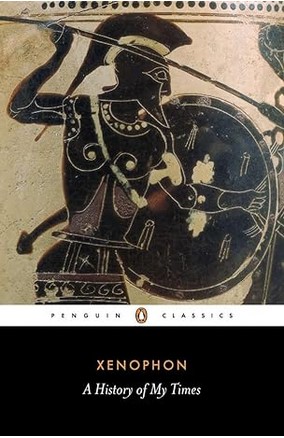
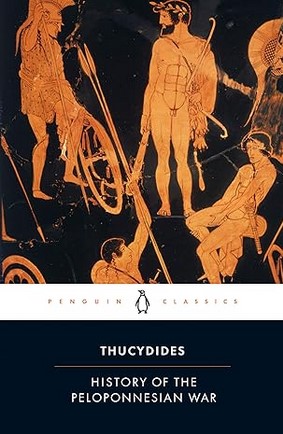
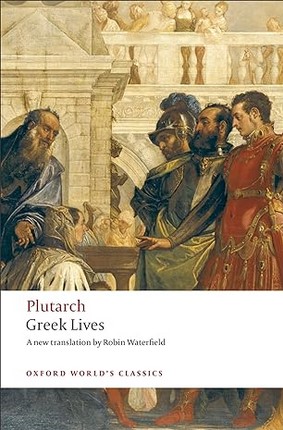
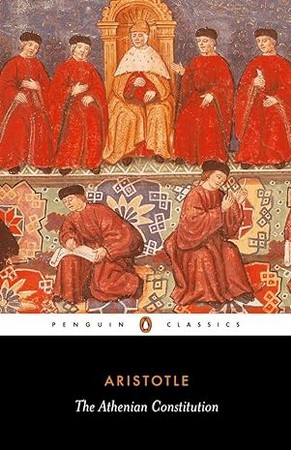
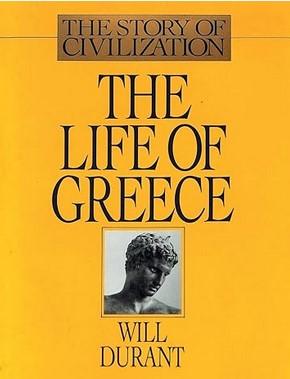


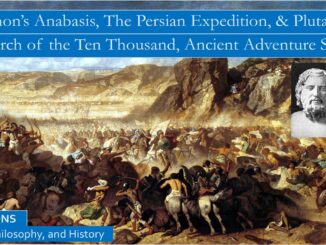
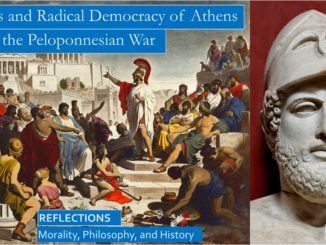
Be the first to comment